Biotin 101: What You Need to Know About Vitamin H or B7
Welcome to our guide on biotin, also known as vitamin H or B7. Biotin is a B-complex vitamin that plays a crucial role in many bodily functions. This water-soluble vitamin is found in various foods, including eggs, nuts, and leafy green vegetables, and can also be taken as a dietary supplement.
This article will dive deeper into the benefits of biotin, the signs of biotin deficiency, and how to boost your biotin intake. Whether you’re looking to improve the health of your hair, skin, and nails or boost your metabolism, biotin may be the key to a healthier you.
So, read on to learn more about the power of biotin.
Which Vitamin Is Biotin?
Biotin is a B vitamin, also known as vitamin H or B7. It plays a role in the metabolism of carbohydrates, fats, and amino acids and is necessary for healthy skin, hair, and nails. It is also required to produce keratin, the protein that makes up hair, skin, and nails.
Biotin is a water-soluble vitamin that dissolves in water and is not stored in the body. Therefore, you must obtain it through diet or supplements regularly.
Biotin is found in various foods, including eggs, nuts, and leafy green vegetables, and can also be taken as a dietary supplement.
Is Biotin a B12 or B7?
B12 and biotin are two different vitamins and have other functions. B12 is also known as cobalamin, which plays a crucial role in producing red blood cells and the proper functioning of the nervous system.
Balancing all B vitamins, including B7 and B12, in your diet for optimal health is essential.
| Vitamin B7 (Biotin) | Vitamin B12 (Cobalamin) |
| Helps the body convert food into energy | Helps to make red blood cells and DNA, as well as maintaining a healthy nervous system |
| Supports the health of the skin, hair and nails | Helps to prevent a type of anemia called megaloblastic anemia |
| Found in eggs, nuts, and leafy green vegetables | Found in animal products such as meat, fish, dairy, and eggs |
| Deficiency symptoms include hair loss, dry skin, and fatigue | Deficiency symptoms include tiredness, weakness, constipation, loss of appetite, weight loss, nerve damage |
| Recommended daily intake is 30-100 micrograms | Recommended daily intake is 2.4 micrograms |
What Are Biotin Side Effects?
Biotin is considered safe for most people when taken in appropriate doses. The recommended daily intake for adults is between 30 and 100 micrograms, which is easily obtained through a healthy diet. High doses of biotin supplements may cause some side effects, including
- Acne or skin rash: High doses of biotin may cause an acne-like rash on the face, scalp, and neck.
- Digestive issues: High doses of biotin may cause diarrhea, stomach pain, and nausea.
- High blood sugar: In rare cases, biotin supplements may increase blood sugar levels, which may concern people with diabetes.
- Interference with lab test results: High doses of biotin can interfere with specific laboratory tests, such as thyroid function tests and cancer markers.
Is Biotin Safe For Kidneys?
Biotin is generally considered safe for most people when taken in recommended doses. However, there is limited information available on the effects of biotin on the kidneys.
Some studies have suggested that biotin may benefit people with kidney disease, as it may improve glucose metabolism and reduce inflammation.
As with any supplement, it is essential to talk to your doctor before taking biotin, especially if you have a pre-existing kidney condition or are taking any medications that may affect kidney function.
Does Biotin Grow Hair?
Biotin is often touted as a supplement that can help grow hair and improve hair health. Biotin is essential for the production of keratin, a protein that makes up the structure of hair, skin, and nails. So, biotin may help promote hair growth by supporting the hair shaft’s health.
However, there is limited scientific evidence to support the claim that biotin alone can significantly encourage hair growth. While biotin deficiency can lead to hair loss and other hair problems, most people get enough biotin from their diet. Taking biotin supplements may not provide additional benefits for hair growth.
Hair growth is a complex process, and multiple factors, such as genetics, hormone levels, and overall health, can affect the rate of hair growth. So, it is always best to consult a healthcare professional to determine the underlying cause of hair loss and develop a treatment plan tailored to your needs.
What Are Biotin Benefits?
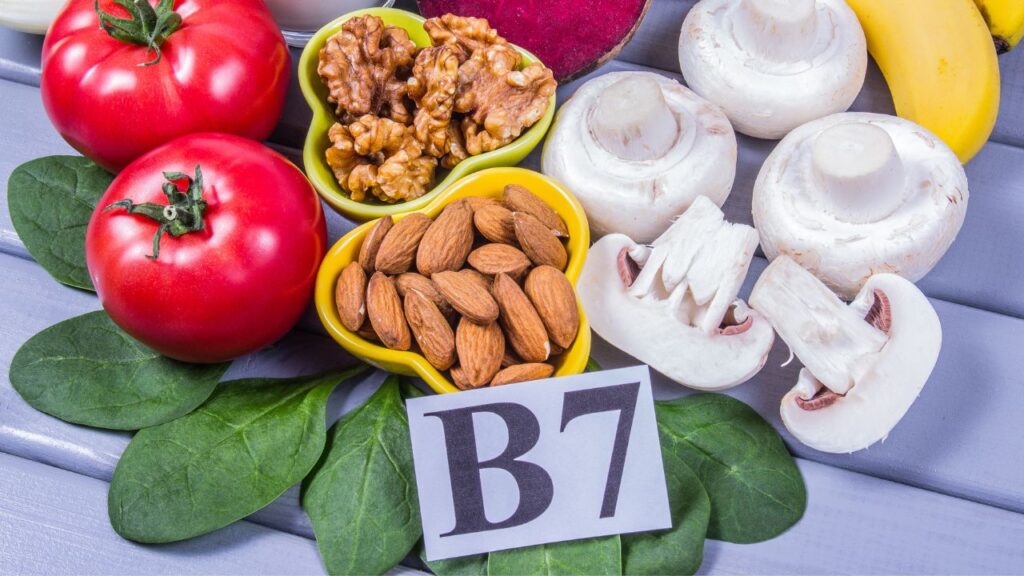
Biotin, also known as vitamin H or B7, is a B vitamin that plays a vital role in many bodily functions. Some potential benefits of biotin include
- Healthy hair, skin, and nails: Biotin is necessary to produce keratin, the protein that makes up hair, skin, and nails. A biotin deficiency can lead to dry, brittle hair and nails and skin rashes.
- Metabolism: Biotin helps the body convert food into energy by aiding the metabolism of carbohydrates, fats, and amino acids.
- Neurological function: Biotin may play a role in maintaining healthy nerve function and cognitive function.
- Blood sugar control: Biotin may help regulate blood sugar levels and improve glucose metabolism, which may benefit people with diabetes.
- Pregnancy and lactation: Biotin may be important for pregnant and lactating women as it is essential for the growth and development of the fetus and the baby.
- May have anti-inflammatory properties: Some studies have suggested that biotin may have anti-inflammatory properties, which may be beneficial in certain diseases, such as kidney disease.
Natural Sources of Biotin
Biotin is found in various natural sources, including
- Eggs: Eggs are an excellent source of biotin, with a large egg yolk containing about 10 to 25 micrograms of biotin.
- Liver: The liver is also a good source of biotin, with a 3-ounce serving of beef liver containing about 30 micrograms of biotin.
- Nuts and seeds: Nuts and seeds, such as almonds, peanuts, walnuts, and sesame seeds, are also good sources of biotin.
- Dairy products: Dairy products, such as milk, cheese, and yogurt, also contain small amounts of biotin.
- Whole grains: Whole grains, such as oatmeal, brown rice, and whole wheat bread, contain small amounts of biotin.
- Fruits and Vegetables: Fruits and vegetables like sweet potato, cauliflower, avocado, and raspberries also contain biotin.
Does Biotin Interact With Any Medicine?
Biotin may interact with some medications, including:
Anticonvulsants: Medications used to treat seizures, such as carbamazepine (Tegretol) and phenobarbital, may decrease biotin levels in the body.
Antibiotics: Long-term use of antibiotics, such as sulfonamides, may reduce biotin levels in the body.
Birth control pills: Biotin may affect the effectiveness of birth control pills, so it’s essential to use additional birth control methods if you’re taking biotin supplements.
Lab tests: High doses of biotin can interfere with certain laboratory tests, such as thyroid function tests and specific cancer markers.
Final Words
Biotin, also known as Vitamin B7, is essential in maintaining overall health. It helps convert food into energy, supports skin, hair, and nail health, and helps the nervous system function.
While biotin is safe for most people, it can interact with certain medications and interfere with lab test results. It’s always best to inform your doctor about supplements, including biotin, and follow the recommended dosage.
Additionally, a balanced diet that includes a variety of food sources, such as eggs, nuts, and leafy green vegetables, can help ensure you’re getting enough biotin. With the proper care, biotin can help you maintain optimal health and wellness.

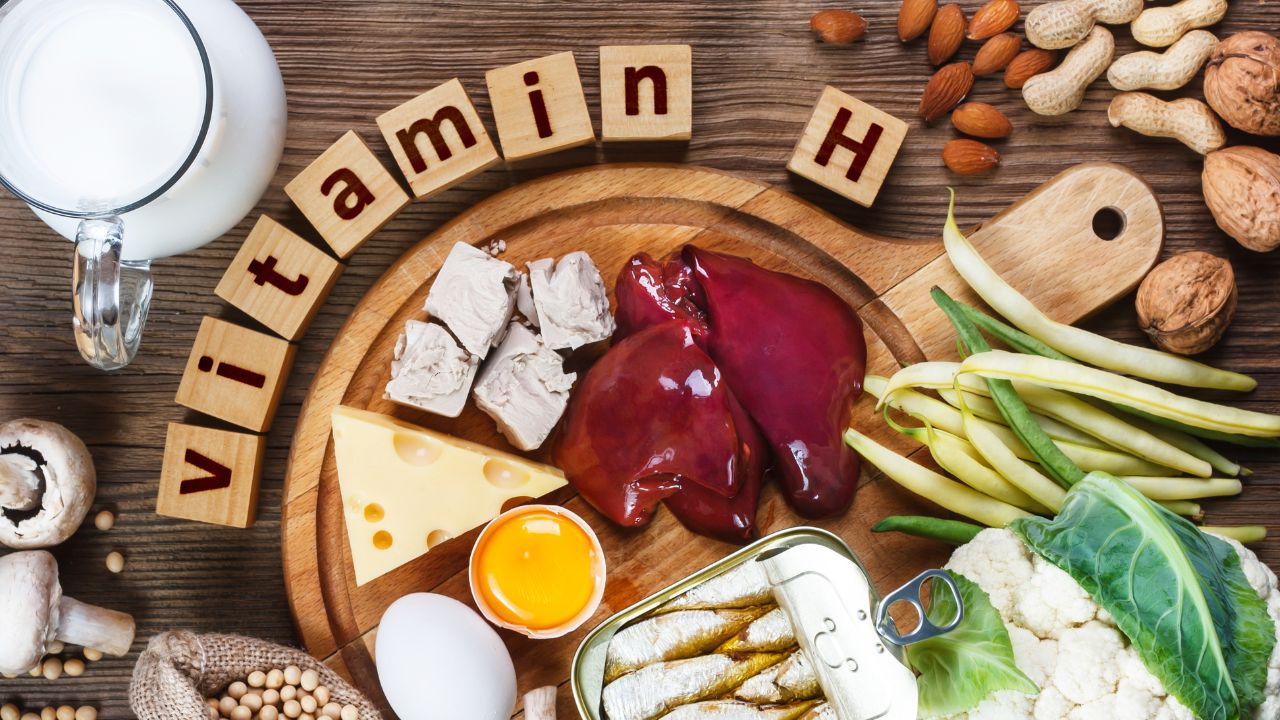

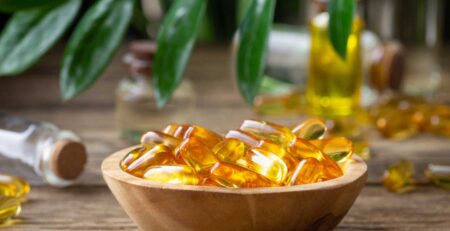




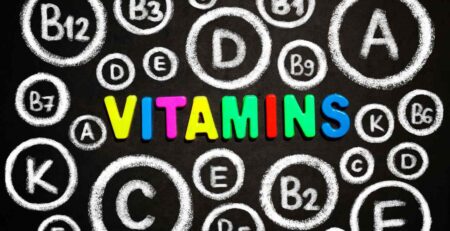
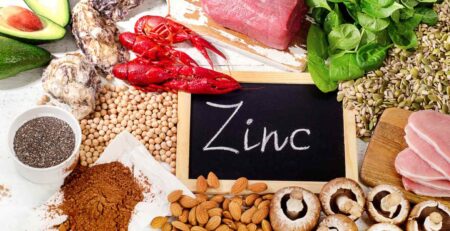

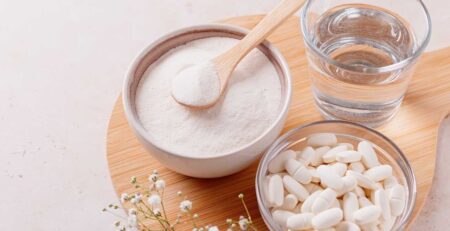
Leave a Reply